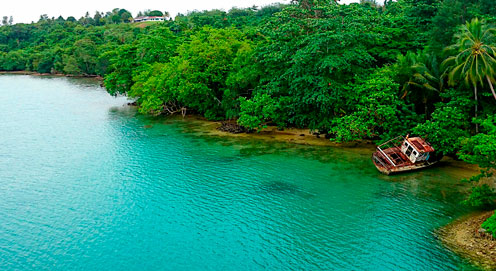Asylum seeking in the South Pacific: Perspectives on the case of Manus Island

In this public lecture, the case of Manus Island will be addressed from different perspectives.
Stories of the treatment of asylum seekers at the Manus Island Regional Processing Centre in Papua New Guinea have attracted much international attention, yet there has been little analysis of its local and transnational impact. Steffen Dalsgaard, Ass. Professor, ITU will introduce the historical and local aspects of the location of the Centre. The presentation will focus on repercussions for the communities on Manus Island, domestic affairs in Papua New Guinea, and the relationship between Papua New Guinea and Australia, as a contextualization for the following presentations:
Dispossession and Disappearance in the Post Sovereign Pacific: The Regional Resettlement Agreement between Australia and Papua New Guinea, an ethnography of loss
Paige West, Claire Tow Professor of Anthropology at Barnard College, Columbia University
In July 2013 the Prime Ministers of Australia and Papua New Guinea agreed to the Regional Resettlement Arrangement between Australia and Papua New Guinea (colloquially known as "The Papua New Guinea Solution") an international agreement that diverts asylum seekers who attempt to reach Australia by boat to Manus Island, Papua New Guinea, for immediate detention and processing, and then eventual resettlement in Papua New Guinea. Much of the analysis of this agreement has focused on the political-economic relationship between Australia and its former colony and the international relations surrounding the questions of who will and can take asylum seekers who are granted refugee status. This paper focuses on the lives that have been touched by the Papua New Guinea Solution and ask how we as anthropologists (and other social scientists of global change) are to understand, theorize, and write about new forms of mobility and displacement and the new forms of subjectivity that result from them.
Old Savage, New Savage: The Denial of Human Dignity in the Age of Human Rights
J.C. Salyer, Assistant Professor of Practice, Anthropology and Human Rights, Barnard College, Columbia University
Australia's detention and exile of refugees on Manus Island, Papua New Guinea (PNG) is part of a worldwide abandonment of the obligation to provide humanitarian protection for displaced people and a refusal to recognize universal human dignity. While human rights institutions and instruments are rooted in the concept of human dignity, in practice, the denial of human rights protections is rooted in the denial of human equality. Australia's exile of refugees to PNG (the so-called "Papua New Guinea Solution") requires it to deny human equality for both refugees and Papua New Guineas alike. Globally, migrants are the new "savages" who, like previous iterations of the savage, serve to define and validate western subjects. Today, moral panics regarding migrants confirm the value of western citizenship despite neoliberal austerity and anti-democratic socio-economic inequality by ostensibly demonstrating the value of the societies, migrants seek to enter. Conversely, this characterization of migrants as threatening savages demeans any society deemed as an appropriate place to site them. In the case of PNG, this is done by mobilizing the old savage slot and characterizing the nation as a backwards and underdeveloped state that should be grateful for whatever aid it receives from its former colonial master. This paper examines the denial of human dignity in current immigration policies by closely examining the implementation and effects of Australia's PNG Solution.
Discussants
- Zachary Whyte, Associate Professor, AMIS, University of Copenhagen
- Dr Nikolas Feith Tan, Researcher, The Danish Institute for Human Rights

